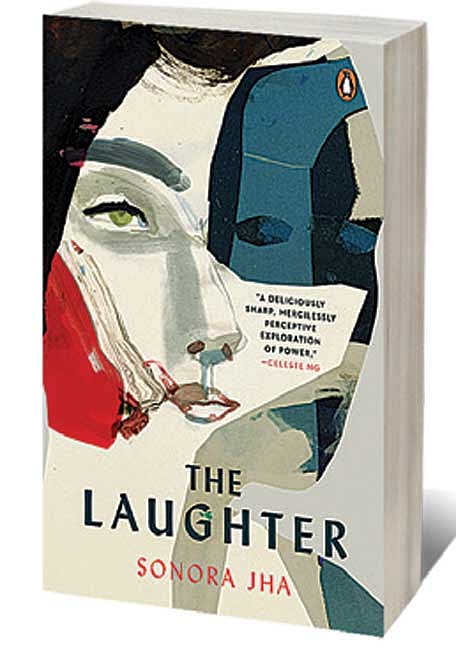Class Struggle

IT IS 2016. American politics is abuzz with discussions of the Clinton–Trump debate. Race, feminism, LGBTQ+ and campus protests dominate the universities. It is a time of churn.
Dr Oliver Harding is an ageing professor of English at a university in Seattle and a scholar of GK Chesterton. He is a divorced philanderer who is rejected by his only daughter, who does not even want him to attend her wedding or give her away. Yet he still secretly knits for his daughter, a hobby they shared before she was taken away by his now ex-wife.
Oliver develops an infatuation with his young Pakistani Muslim colleague Ruhaba Khan, a hijab-clad professor of law, but she prefers to remain his friend. The novel is narrated by Professor Harding as a flashback. There is a subplot: Oliver’s friendship with Ruhaba’s nephew Adil, who has been sent to live with his aunt after his involvement with Muslim youths in France who objected to women— including Adil’s mother— being insulted by the police for their headscarves. Oliver gets into an avuncular relationship with Adil, who takes Oliver’s dog for its daily walks. Oliver takes Adil on a trek into the mountain and becomes his mentor and advisor. Adil tells him about Camille, a French girl from Toulouse and the love of his life. He is under suspicion by the French police and the FBI now follows him in the US, where both aunt and nephew are under suspicion. He is afraid of guns, yet Oliver wonders whether he was associated with a terrorist shooting. Even as Harding lusts after the aunt and mentors the nephew, he unhesitatingly provides information about both of them to the FBI agents. Ruhaba is an enigma. We know her from her letters and her writings, but there is much that we do not learn about her till the end.
Oliver has always believed that he was a liberal, but he begins to wonder as he comes across the demands of the students, who are supported by Ruhaba. The protestors break into the university, demanding an overhaul of the humanities curriculum and the inclusion of professors from marginalised backgrounds: people of colour, new immigrants and queers. The professors are stunned out of their white complacency. Relationships and dynamics are tested: students versus professors, professor versus professor and so on. Oliver hosts a Halloween party for the staff and students, which turns out to be a disaster.
The denouement is startling and unexpected. This is the last thing we expected to read. Yet that is not the end. The book glides gently towards an unexpected indeterminate conclusion, which leaves us guessing.
AIming High
20 Feb 2026 - Vol 04 | Issue 59
India joins the Artificial Intelligence revolution with gusto
The Laughter is a novel of campus life and human frailties, of lecherous old men and determined youth, of women absorbed in the importance of their ideas and young people willing to take to violence to achieve their goals. A recipe for disaster—but also a recipe for a very readable and absorbing book. Through all this, the young boy Adil symbolises the innocence of youth. His love for Camille alone matters to him, and he gives Oliver a letter to be reached to her in Toulouse. Yet he finally stands up for his traditional values to protect his aunt.
Jha is a master craftswoman, creating situations suddenly and with aplomb, occasionally punctuated with quotes from Chesterton. Just as you think this is a book about a lecherous old man, the situation changes. When you are nearly convinced that this is about campus life, there is a fresh twist. The Laughter represents the changing life in American landscapes as people of different colours, races and sexual preferences interact, and the difficulties that develop in their interaction. Academic life is held up as comic and absurd, yet it has an inevitability that defies change.

